MPG Increases and Decreases Explained
If you are a member of this blog, you certainly have heard a lot about miles per gallon. Maybe I'm talking about triple-digits, maybe I'm complaining about single-digits, maybe I'm talking about my own mediocre numbers. Whatever the reason, if the discussion is about sustainable transportation then the concept of energy efficiency will inevitably surface.
It is fairly simple to point at a big es-yoo-vee and say "yup, low MPG." Most of the time you will be right but what about the mid-sized sedans? The compacts? The sub-compacts? Does same size mean equivalent consumption? You might be surprised by what, exactly, makes up a miles per gallon figure.
I wanted to make my GTI have a
little better MPG so I looked into what I might be able to fix or change. Here's what I learned.
There are two different numbers to consider
When you look up the figures for a car, you're going to see two figures (well, three including the "combined" number): city and highway. Here's mine, taken from
fueleconomy.gov:

Big difference, right? That's actually a pretty significant gap between the two compared to other cars.
It's good to keep in mind that hybrids are the opposite of this: great mileage in the city but less on the freeway. This is because hybrids benefit from stop and go (it recharges their batteries through
regenerative braking) and not so much from cruising long distances (no chance to use the electric motor).
So why the discrepancy?
Why are the numbers so different?
In my quest to find the biggest change I could make on my car to make the biggest difference in miles-per-gallon, I stumbled onto a
great article at
Tirerack.com. My first idea to raise my efficiency was to change the tires to low-resistance ones. I had seen on many a concept car that they came with tires that were manufactured with a rubber compound that contributed less friction to the whole mess of driving dynamics. Tirerack explains low-resistance tires:
A tire's rolling resistance does affect fuel economy...[low rolling resistance] tires are often designed with a priority on reducing weight and rolling resistance and are molded with slightly thinner sidewalls, shallower tread depths and use low rolling resistance constructions and tread compounds.
Is goes on to summarize, entirely, everything I have an will say in this post in one useful sentence:
A vehicle's fuel economy is the direct result of its total resistance to movement.
Hot damn! It's like Physics all over again!
Inertia is (according to Cutnell & Johnson's "Physics") "the natural tendency of an object to remain at rest or in motion at a constant speed along a straight line." It goes on to say that the "mass of an object is a quantitative measure of inertia." Basically, without some kind of force (generated from some kind of energy output), a banana or a mountain or, I don't know, a car won't move if it it not moving. If it is already moving, it will continue in that direction until some kind of force stops it. Park a car in neutral on a flat spot of pavement and car no go. Push it (calories used from your output), start it up and hit the gas (joules from the gasoline), or stick it in the middle of a hill (good ol' gravity) and now the car is going.
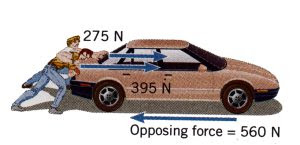
Now, on the freeway, put your car in neutral and what happens? It keeps going but it will eventually stop. Breaking the laws of physics? Nope, just being acted upon by resistance from the wind, your driveline (transmission, etc), and tires.
That's the science, here's the specifics.
MPG on the highway
Unless you're in a hybrid, you're going to find higher miles per gallon as a default. That is, of course, unless you're doing an average of 100MPH every day on the freeway but switch back to Dr. Jekyll on the surface streets. Either way, there are different forces at work on the freeway. Tirerack, again, explains:
Overcoming inertia no longer plays an appreciable role in the vehicle's resistance during steady speed highway driving. For those conditions it is estimated that driveline friction is about 15%; air drag is about 60% and tire rolling resistance represent about 25%.
Keep in mind that we're talking about "resistance to movement" so we're not including engine size or driving style though these both play a big part.
As you can see, air drag is a huge component of freeway MPG. This is a good thing to know, especially those who might have a roof rack on their cars year-round. This also explains why your efficiency goes down as your speed goes up. the faster you go, the most air drag you will need to deal with.
Take-aways:Reduce drag by removing unnecessary extrusions (roof racks, spoilers, mirrors, antennae, stickers, etc)
Keep your driveline in good shape by staying up on maintenance and replacing brake pads that are making noise continually (these are good things to do regardless)
Look into low resistance tires if you're in the market (stay tuned for more information on this)
City dwellers?
MPG in stop-and-go
Stop-and-go conditions (the kind where you stop and then go... repeatedly) are a totally different bag of beans. Back to Tirerack:
During stop-and-go city driving, it's estimated that overcoming inertia is responsible for about 35% of the vehicle's resistance. Driveline friction is about 45%; air drag is about 5% and tire rolling resistance is about 15%.
To explain: overcoming inertia is getting the vehicle off of its haunches and going. This is, by definition, going to be greatly affected by the weight of the vehicle. Big cars and trucks need big engines to get their big masses going.
Driveline friction, here, clearly makes a much bigger difference than on the freeway. Air drag, unlike on the freeway, is basically nil and the effects of your tires are even less.
Take-aways:
The less you carry around in your car, the better. Ditch the useless crap in the trunk, replace your 4 twelve-inch subwoofers with a pair of tens (please), and lose some weight.
City drivers should be more vigilant about their tune-ups (for many reasons).
Averages
If you average about the same city and highway, here's how the figures break down (simple averages):
Inertia: 17.5%
Driveline friction: 30%
Air resistance: 32.5%
Tires: 20%
Now you know! Stay tuned for more information on tire resistance!
.jpg)



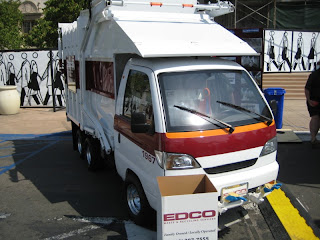




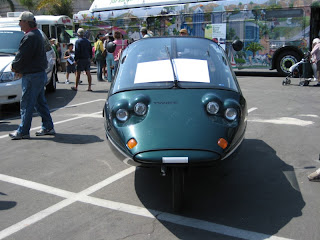
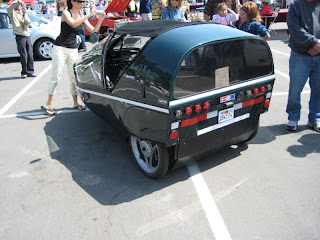
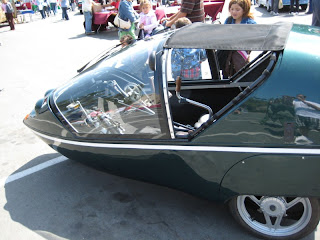


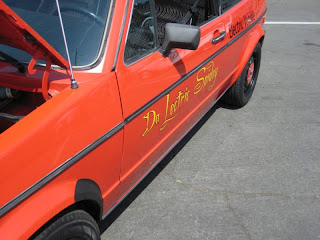



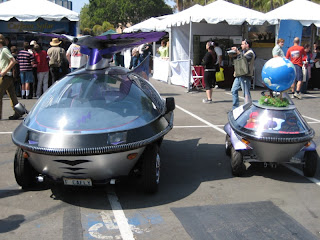

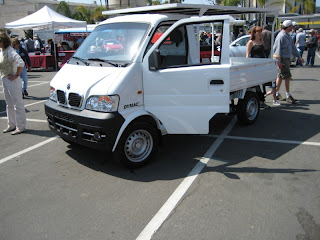
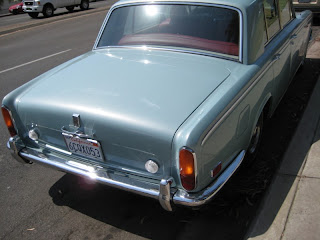



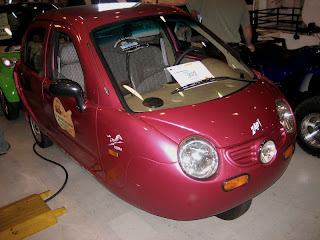



.bmp)

